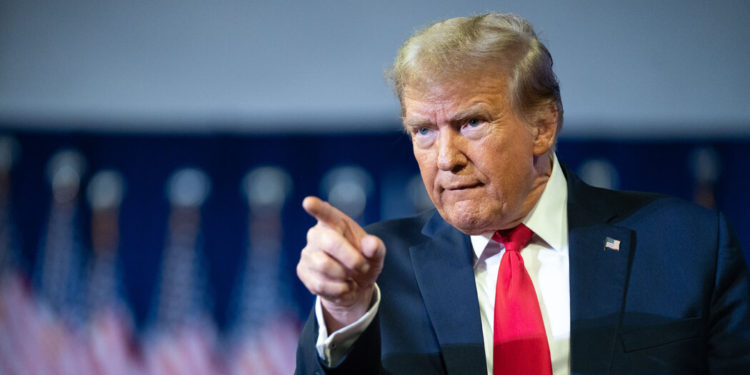By AGGREY BULUBA
Fair trade dictates that when one nation imposes tariffs on another, the same terms should apply in return. This principle is now shaping U.S. President Donald Trump’s latest efforts to address trade imbalances.
On Thursday, February 13, Trump signed a memorandum directing officials to develop tariffs that promote a more balanced exchange. These new measures will take into account existing tariffs, trade balances, and currency exchange rates.
While details remain unclear, Trump’s initiative could spark global trade negotiations, particularly with nations like India, Vietnam, and Thailand, which may be impacted by these policies. Even the European Union, which already enforces tariffs on various U.S. goods, could face new challenges.
The push for “reciprocal trade” is intended to encourage investment in the U.S. and boost domestic manufacturing. Trump argues that American-made products should not be subject to tariffs when sold domestically. “If you make your product in the U.S., there are no tariffs,” he stated, emphasizing the disparity between tariffs imposed by the U.S. and those charged by other countries.
The European Union is expected to be a focal point of these policies, with tariffs on American exports—such as automobiles—under scrutiny. Other nations, including Brazil, have also been highlighted for imposing high tariffs on U.S. goods like ethanol.
Trump’s trade agenda also extends to digital taxes, a growing source of tension between the U.S. and other nations. Countries like Canada and the United Kingdom have implemented taxes on American tech giants, fueling concerns about fairness in global trade.
Despite Trump’s confidence in the long-term benefits of these policies, critics warn of potential economic consequences. Some economists caution that higher tariffs could lead to increased costs for businesses and consumers, potentially driving inflation.
Ultimately, the impact of these trade policies remains to be seen. However, as the old saying goes, “What’s good for the goose is good for the gander”—if other countries impose high tariffs, the U.S. plans to respond in kind.







Discussion about this post